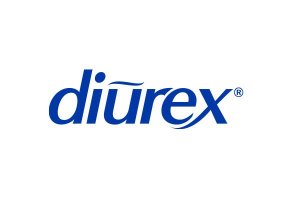Diurex

Summary
Diurex offers a line of water pills that are proposed to relieve bloating. Our review will help you understand if this is the right solution for you.
Diurex Review: Effectiveness, Side Effects, and More
Diurex claims that their line of water pills can relieve bloating due to excess water weight gain.
Bloating is the subjective sensation of abdominal inflammation or swelling. It is a common issue that affects both men and women. More than 30% of the population may experience bloating at some time, according to a survey from the early 90s.
Abdominal bloating is not a disease. Instead, it is a symptom of another underlying issue. Therefore, your bloating may be related to a number of potential causes.
Some of the more common include:
- Indigestion
- Menstruation
- Gut bacteria imbalances
- Dietary factors (like lactose intolerance or gluten sensitivity)
- Constipation
- Irritable bowel syndrome (IBS)
While often the solution is to identify and treat the underlying condition, there are available products that claim to offer relief for your symptoms.
Diurex is one such option. They state that their line of water pills offer “prompt, proven relief” by promoting fluid balance. This proposed benefit is thought to be accomplished by removing excess water through urination.
With so many causes of bloating, can Diurex really provide a solution?
In this article, we’ll help you answer this question by reviewing the scientific studies that have examined the actions of the Diurex ingredients.
Diurex Active Ingredients: Do They Work?
Diurex offers a line of 8 water pills, or diuretics, all aimed at accomplishing the same goal; the vast majority of their products provide just a single active ingredient.
Here, we will provide an overview of the active ingredients and highlight any pertinent research.
Diurex Aquatrim Herbal Blend
Their herbal water pill differs from the remaining options in that it offers a blend of 10 ingredients. The other seven products provide just a single active ingredient.
Vitamin B6 (as Pyridoxine HCl) – 25 mg
B Vitamins are found in foods like meat, seeds, and nuts. They may offer support for brain and nerve health, red blood cell function, energy metabolism, and heart health.
Its role in relieving bloating is less well studied. The use of B6 in those with premenstrual syndrome may reduce bloating.
Corn Silk Powder Extract – 25 mg
You may have noticed corn silk while shucking corn; it is the shiny, thin fibers found under the husks. It may offer benefits similar to diuretics.
Doses of corn silk extract ranging from 25–500 mg/kg bodyweight were tested in rats to determine the effect on promoting urination. The largest doses were effective in doing so.
Paprika Powder – 25 mg
This nutrient-dense spice may offer anti-inflammatory and antioxidant capabilities. Its diuretic effects are not well-studied.
Watermelon Juice Powder – 25 mg
This fruit is over 90% water, so its potential role in promoting urination may not be so surprising. In rats, watermelon pulp extract increased urine output.
Apple Cider Vinegar (ACV) – 50 mg
ACV has several proposed benefits, including antibacterial and metabolism-boosting capabilities. While these benefits have been investigated, identifying a potential role as a diuretic still requires more research.
Buchu Leaf Extract – 50 mg
This extract is obtained from plants native to South Africa and is a common ingredient in natural diuretic supplements. While benefits like relieving upset stomach have been documented, its role in promoting urination is less supported.
Juniper Berry Extract – 50 mg
This evergreen shrub has been used in natural medicine for centuries. While it is often used as a diuretic in countries all over the world, there is limited research supporting this benefit.
Cranberry Fruit Powder – 75 mg
Cranberries are nutrient-dense and are thought to offer a number of health benefits. Cranberry supplements may lower the risk of urinary tract infections.
Green Tea Extract – 100 mg
Green tea’s ability to increase urinary output is likely related to its caffeine content.
Dandelion Leaf Extract – 225 mg
Dandelion is packed with vitamins and minerals. Its diuretic effect has been demonstrated in human subjects.
Like other herbal blends, many of the ingredients found in this supplement have been anecdotally proven to be beneficial in folk medicine over many centuries. Scientific evidence is often lacking or occurs only in laboratory and animal models, however.
Still, for those that wish to opt for caffeine or drug-free formulations, Diurex’s herb blend may be a reasonable option.
Caffeine Anhydrous – 100 mg and Pamabrom – 50 mg
The remaining seven options are thought to offer diuretic benefits with just a single active ingredient – either caffeine anhydrous or pamabrom.
Caffeine anhydrous, like natural caffeine, offers stimulatory and diuretic capabilities.
It differs from natural forms in that it is a highly concentrated form of caffeine; 1tsp, or 5000mg, is roughly 28 cups of coffee.
The research involving caffeine anhydrous seems to revolve mainly around its ability to increase energy and athletic performance. Scientific support for its diuretic effects is lacking.
On the other hand, this action has been demonstrated in natural caffeine. In healthy subjects, 240mg of caffeine increased urinary output.
One of the major concerns for this effect is dehydration. According to this study, caffeine consumed between 4 and 6 mg/kg body weight daily is unlikely to have adverse effects. This range provides similar hydrating qualities to water in males that drink coffee regularly.
Their other key ingredient, pamabrom, is an over-the-counter diuretic whose active ingredient is 8-bromotheophylline. It is thought to increase urine output similar to caffeine without the stimulatory effects.
Pamabrom has been used in supplements for decades, though the only studies that investigated its proposed diuretic actions were done in the early 1950s. Thus, the available scientific support is lacking.
Summary
While natural caffeine is an effective diuretic, this action has not been demonstrated in caffeine anhydrous. Pamabrom may offer a reasonable option for those sensitive to the effects of caffeine, but there isn’t much research to back it up.
Possible Side Effects
Most of the ingredients included in Diurex have limited support.
You are most likely to experience adverse effects with the stimulant-containing supplements.
Caffeine anhydrous is a highly concentrated form of the stimulant. You may react differently than you do with natural forms of caffeine.
5000mg of caffeine anhydrous is equivalent to about 28 cups of coffee. The maximum suggested dose of Diurex is 1600mg or about 9 cups of coffee. This much coffee alone can be dangerous. Keep in mind that you may react entirely differently to caffeine anhydrous.
400mg of caffeine daily is considered to be a safe limit. Consuming Diurex in addition to your typical coffee, soda, or tea habits can put you at even greater danger.
Stimulant-containing supplements can be especially dangerous in that with a history of heart conditions or those being treated with blood pressure medications.
Signs of too much caffeine include restlessness, nausea, agitation, rapid heart rate, and elevated blood pressure. According to the FDA, the rapid consumption of 1,200mg of caffeine can result in seizures.
The FDA also warns against products that use highly concentrated forms of caffeine as they have been linked to at least two deaths.
Lastly, fluid balance should not be managed on your own. Diuretics may cause an unsafe drop in your blood pressure that can be extremely dangerous. Signs your pressure is too low can include lightheadedness and dizziness.
For these reasons, speak with a physician about using this product. Also, never consume Diurex in ways other than those recommended.
Where to Buy and Pricing
According to their website, Diurex products can be purchased online and in-store at retailers like Amazon, CVS, Rite Aid, Walgreens, and Walmart.
The pricing for their eight supplements are:
- Diurex Herbal Water Pills (caffeine-free): $5.99–$10.99
- Diurex Max (caffeine-free): $3.50–$5.99
- Diurex Ultra: $7.00–$8.00
- Diurex Ultimate: $7.00–$9.99
- Diurex Aquagels (caffeine-free): $6.00–$8.00
- Diurex Water Pills + Pain Relief: $3.50–$8.00
- Diurex XPL: $6.40–$9.99
- Diurex Water Capsules (caffeine-free): $7.50–$11.00
Their site makes no mention of a guarantee, so returns will have to be processed through individual retailers.
Alternatives
There are a wide variety of supplements that claim to eliminate excess water with natural ingredients. In light of the dangers associated with large amounts of caffeine anhydrous, the herbal blends may be a better option.
Natural Diuretic from Advanta Supplements has an identical list of ingredients to Diurex’s herbal blend. You can find it at Amazon for $14.99.
As these ingredients are common in water pills, an internet search will reveal many similar products.
The Bottom Line
While some of the herbal ingredients offered by Diurex have been investigated, there isn’t much support for the diuretic effects of caffeine anhydrous and pamabrom.
Several underlying conditions may cause your bloating. Using a water pill may not address the actual cause.
Both stimulant-containing and herbal water pills have the potential to cause harm. While Diurex products are reasonably priced and offer caffeine-free formulations, it is best to manage your fluid balance under the care of a medical professional.

